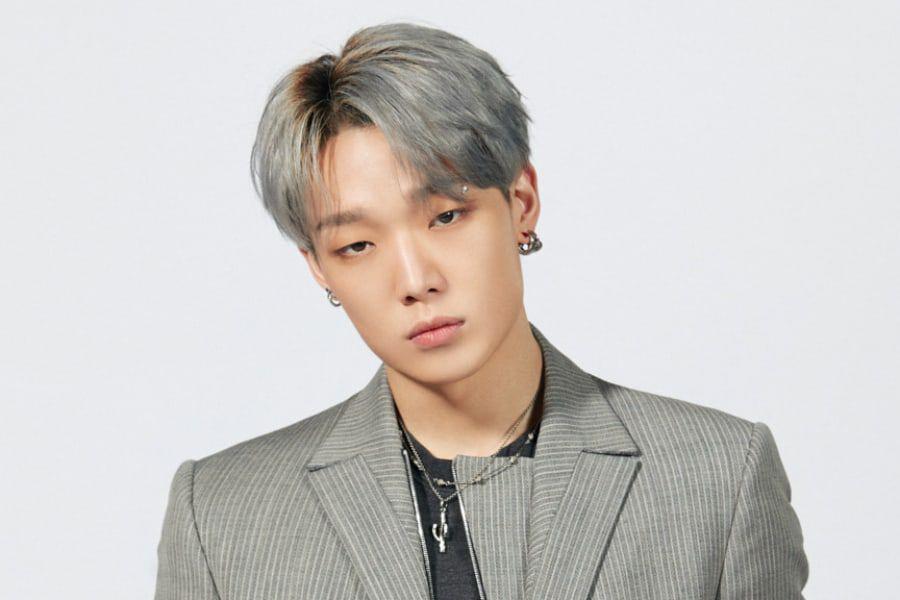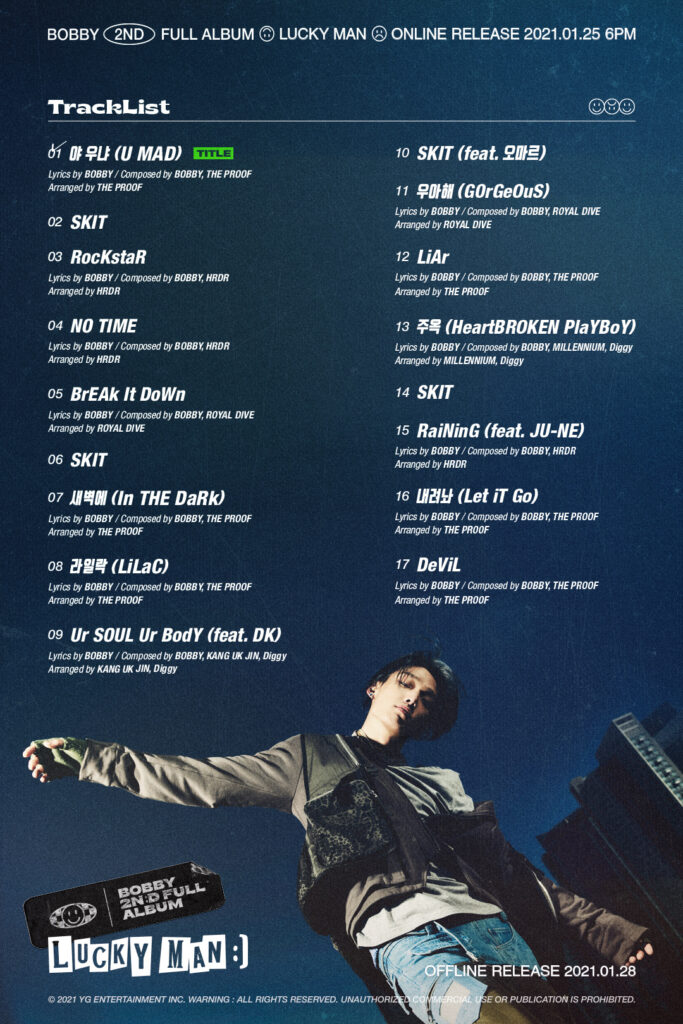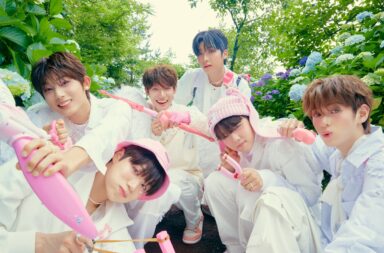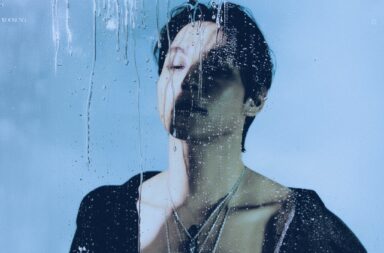
It has been more than three years since Bobby‘s last full solo album, Love and Fall, making his recently released Lucky Man a highly-anticipated one among fans. The album contains 13 tracks and 4 skits that Bobby wrote, produced, sang and rapped, a testament to Bobby’s significant role in the creation of the album.
Bobby explains that the album is meant to reflect the feelings and stories of his twenties — “The main theme is the portrayal of all the bliss and sorrows people go through in youth — falling in love with someone, enduring the agony of a breakup, overcoming the deep sorrow and making a recovery.” He adds that he “wanted to make the album as ‘Bobby-ish’ as it could be because it embraces all my emotions.”
The songs certainly scream “Bobby” — literally, as they all showcase Bobby’s distinct rapping style of shouting, growling and mumbling, and are musically rough-edged and beats-focused. The title track, “U MAD,” for example, is a hard-edged, trap track about Bobby being above his haters, and the hook has him literally scream-rapping while accompanied by a strong electronic melody.
The MV complements the song. It is as if the song was made as a theme song for an action movie’s hero. The explosions and falling-off-the-building stunts visually portray the rising tension of the track. While the MV nails down the feelings of the song, it is narratively conflicting. The hero and villain of the movie both end up being two versions of Bobby, which could have been a neat twist except that it was left unexplained. This narrative is even more confusing in contrast to the lyrics that are directed to his haters, suggesting that the “hater” is Bobby himself, a message that contradicts his boasting and assertion of power over his haters.
Similarly, while the song captures Bobby’s anger towards his haters, the lyrics are vague and scattered. One moment there are throwaway insults comparing his haters to animals — “Wouldn’t be human, more like livestock,” the next, descriptions of getting drunk at Hongdae — “Uh my mind is confused on the streets of Hongdae, Too much shots on my head,” and the next, boasting about popularity with girls — “Gangbuk representative playboy, Ladies love cool boys.”
In a way, the song captures the album’s main themes — fighting back against naysayers, partying, and romancing girls. It also captures the album’s genre of music — a loud, shouty version of hip hop that is uniquely Bobby’s.
While such songs are fun to listen to at a party, or to headbang to at home, having 13 high-adrenaline tracks easily brings fatigue to the listener’s ears. On their own, the songs have catchy melodies and beats. However, listening to the album as a whole, Bobby’s consistent high-tension rapping in every song exacerbates this problem. For example, the first three songs after the first skit, “RocKstaR,” “NO TIME,” and “BrEAk it DoWn” are all beats-heavy with Bobby shouting-singing the choruses, and are all about partying, with the repeated themes of haters and love weaved underneath. The repeated emphasis on partying slowly becomes trite and dull.
Tell me, who dat mother eeigh hating on me
Fuck your dignity, this is a caveman’s house
The places I’ve eaten at, bon appétit
That’s why you can’t, don’t you know what persuassion is?
“RocKstaR”
My location now is downtown Hongdae
Dance, make your booty go up, down
Two people next to me are so beautiful
There’s no time to be bored
“NO TIME”
Rocking with my friends
All the other guys are stupid
I can feel it through my skin
We’re on the verge of collapse
“BrEAk it DoWn”
Similarly, the rest of the songs in the album share dizzying similarities in their instrumentals and vague lyrics, blurring all the songs together into one huge party cacophony.
In comparison, Bobby’s last alum, Love and Fall, while mirroring his trademark style of pop, catchy songs, had a deeper nuance. The title tracks “I LOVE YOU” and “RUNAWAY” are two examples that display Bobby’s musical style, while delivering an upbeat yet melancholic tune that is still easy on the ears.
Personally, it is for this reason that the simpler, cleaner and slower paced tracks stand out in this album. “RaiNing,” featuring fellow iKon member, JU-NE, is another upbeat, yet more emotional track about feeling helpless and depressed. Bobby’s lyrics convey a touch of sincerity that has been swept under the partying-centric lyrics of the rest of the album. We are able to catch a glimpse of his thoughts, masked under the cheery beats of the song:
I wanted to waste more than half of my youth like this
I didn’t waste it because as time went by I didn’t accomplish anything
I hate it more every second, what came is helpless
What an old man is the most desperate about losing is their youth
I have that youth and I can’t do anything
“Let iT Go” is another slower paced song of the album that offers a vulnerable side to love as an invitation to a lover to take a break from the relationship if the other party’s problems are too much to handle. It is songs like these that add a nice variety from the party-heavy songs of the album, and more depth to the album’s lyrics.

The album also features two quirky characteristics, a unique capitalization of every song’s titles and four skits that are dispersed throughout the album to mark a change in the album’s theme.
According to Bobby, each capitalisation is intentional and carries a significant meaning. For example, to stress the soul’s importance over the body, the “soul” was capitalized in “Ur SOUL Ur BodY.” While this adds a quirk to every song title, it also detracts from the meaning each song carries, as listeners are not given any clear indication of what any of the mysterious symbolism is. At a glance, the titles resemble internet slang instead, where toggling capitalization in the spelling of a phrase is used to signify an offhanded or sarcastic tone. As such, this artistic choice of Bobby’s subjectively makes the album appear less polished.
The skits scattered throughout the album are an interesting touch, featuring Bobby’s voice acting, and also other celebrities such as fellow member, Donghyuk and Youtuber Omar. Listeners feel like they are eavesdropping into Bobby’s life, as he has a conversation on a phone about a party while driving his car, talks to Donghyuk about picking up a girl, converses with Omar, and returns home after a day’s work. Yet, similar to the capitalization, the significance of the skits are left obscure, especially the third skit with Omar that has a long narration that turns into a conversation, and finally ends abruptly.
Ultimately, while Lucky Man is certainly very “Bobby-ish” as he intended, laden with his fingerprints from musicality, lyrics, rapping style, to even the titles and skits, the repetition of the three themes becomes trite, and many of the “Bobby-ish” aspects of the album serve to detract from the listener’s experience rather than add to it. The significance of his artistic choices in his skits and titles are left obscure, his repetitive lyrics leave more to be desired, and his distinctive style of shouting increases listener’s fatigue.
The album could connect with listeners more if it had greater variation in its themes and relatability in its treatment of subjects. As it is, the album certainly nails being a feel-good, party playlist to blast in your car.
(KoreaHerald, YouTube, Images via YG Entertainment.)


